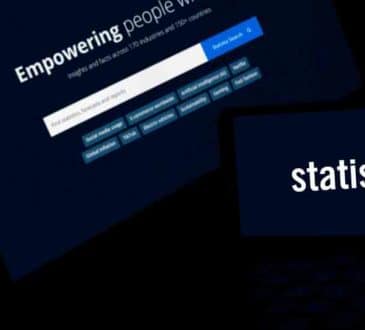An In-Depth Interview with Entrepreneur Peter J. Burns III

Peter J. Burns III is a pioneering entrepreneur whose extensive career spans over four decades, during which he has successfully launched and nurtured more than 200 businesses. Based in Del Mar, California, Burns began his entrepreneurial journey during his studies at the University of Virginia’s McIntire School of Commerce, where he initiated his first business, a moped rental service on Nantucket Island. This early venture marked the beginning of a long series of innovative startups across various sectors.
Burns is the founder of Burns Funding, an alternative funding source for entrepreneurs, and Millennial Queenmaker, an organization dedicated to empowering young women to succeed in business. His ventures often blend profitability with a social mission, focusing on sustainable practices and social entrepreneurship.
Recognized for his contributions to business education, Peter J. Burns III helped establish the nation’s first College of Entrepreneurship at Grand Canyon University. His efforts have earned him numerous accolades, including being named Businessperson of the Year by the Arizona chapter of the Future Business Leaders of America. Burns continues to inspire with his dedication to mentoring young entrepreneurs and his commitment to innovation and ethical business practices.
What was the most unexpected challenge you faced when you first started out as an entrepreneur?
One of the most unexpected challenges was the complexity of managing cash flow. Early in my career, I underestimated how critical it is to maintain a healthy cash flow, not just for survival but for growth and stability. Learning to forecast and manage finances meticulously was a steep but invaluable learning curve that significantly influenced my approach to business.
How do you evaluate a new market or industry before entering it with a business idea?
My approach involves a combination of market research, firsthand observation, and pilot testing. I start with comprehensive market research to understand trends, customer needs, and existing gaps. Then, I often immerse myself in the market, sometimes as a consumer or through informal focus groups, to get an unfiltered look at the market dynamics. Finally, pilot testing with a minimal viable product helps gauge the actual response to the product or service, allowing for adjustments before a full launch.
Can you share an experience where you had to pivot your business strategy unexpectedly? How did you handle it?
A notable pivot was during the early 2000s when I ventured into the electronic payments industry. Initially, the business model was geared solely towards high-risk markets, but regulatory changes and market saturation posed significant risks. We pivoted by broadening our market to include low-risk businesses, significantly diversifying our client base and stabilizing the business. This pivot not only helped us survive but also thrive by tapping into a market we previously overlooked.
What are the key qualities you look for in a potential business partner?
Integrity, passion, and complementary skills are essential. A good business partner should share your core values and vision but also bring a set of skills or knowledge that you might lack. This diversity in skills and perspective can be crucial for overcoming challenges and driving innovation.
In your opinion, what is the biggest misconception people have about starting their own business?
Many people believe that starting a business is about finding a revolutionary idea, but in reality, it’s more about execution and solving real problems. It’s not always the most innovative ideas that lead to success but rather the best-executed ones. The ability to execute a plan effectively, from managing finances to delivering on customer expectations, is often what sets successful businesses apart.
How do you keep your team motivated and engaged, especially during tough times?
Transparent communication is key. I make it a point to keep the lines of communication open, sharing both challenges and successes with my team. During tough times, I focus on being present and accessible, ready to listen and provide support. Empowering the team by involving them in decision-making processes and acknowledging their efforts also helps maintain morale and motivation.
What role does technology play in your current businesses, and how do you stay ahead of tech trends?
Technology is at the core of all my businesses, whether it’s through advanced data analytics, digital marketing, or customer relationship management systems. To stay ahead, I regularly attend tech conferences, participate in webinars, and collaborate with technology experts to keep updated on the latest trends and tools that can enhance business efficiency and customer satisfaction.
What’s one piece of advice you’d give to someone who wants to start a business in a highly competitive market?
Focus on building a strong brand and customer loyalty. In competitive markets, differentiation through branding and customer experience can be more effective than competing on price or product alone. Understand your customers deeply and strive to consistently meet and exceed their expectations to build a loyal customer base that can withstand competitive pressures.
How do you assess the impact of your social responsibility initiatives?
We use both qualitative and quantitative measures to assess the impact. This includes regular monitoring and reporting on specific metrics aligned with our goals, such as reduction in carbon footprint, community engagement levels, or the effectiveness of our employment programs. We also conduct surveys and feedback sessions with stakeholders to gather insights on the social value and perception of our initiatives.
Looking forward, what new industry or venture excites you the most and why?
I am particularly excited about the sustainable technologies sector, especially renewable energy and eco-friendly materials. The shift towards sustainability is not just a trend but a necessary change to address environmental issues. The potential for innovation in this area is vast, and the impact it can have on the planet and future generations is profound. Engaging in this sector aligns with both my business goals and personal values, offering a meaningful path forward in my entrepreneurial journey.
Have you read?
Safest Countries in the World.
Most Productive Countries in the World.
Most peaceful countries in the world.
Most influential financial centers in the world.
Add CEOWORLD magazine to your Google News feed.
Follow CEOWORLD magazine headlines on: Google News, LinkedIn, Twitter, and Facebook.
Copyright 2024 The CEOWORLD magazine. All rights reserved. This material (and any extract from it) must not be copied, redistributed or placed on any website, without CEOWORLD magazine' prior written consent. For media queries, please contact: info@ceoworld.biz











